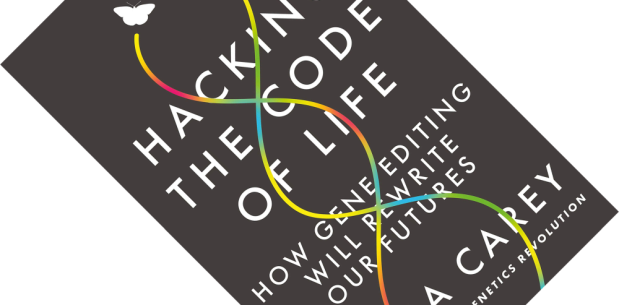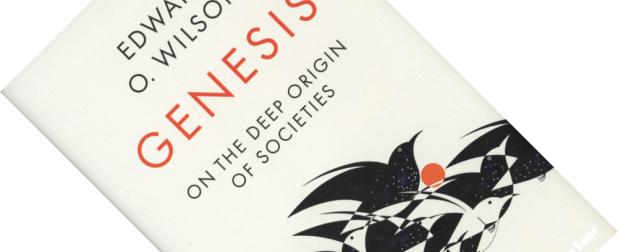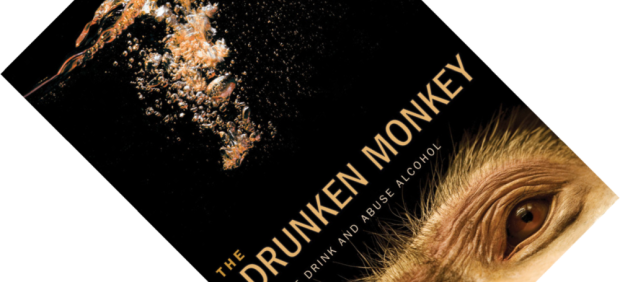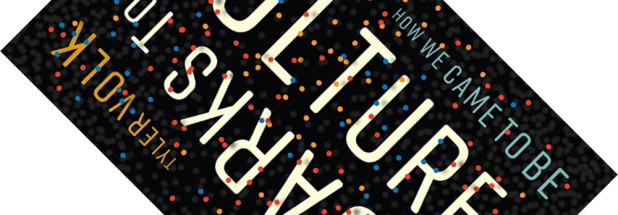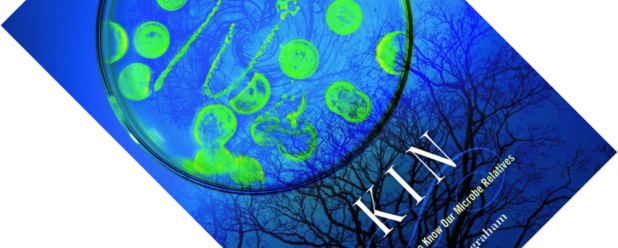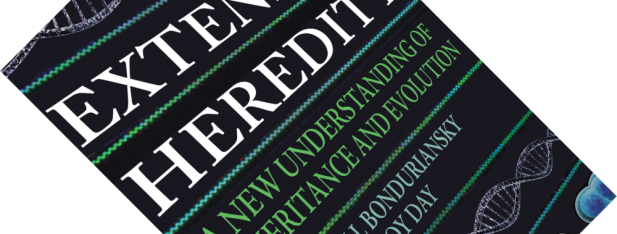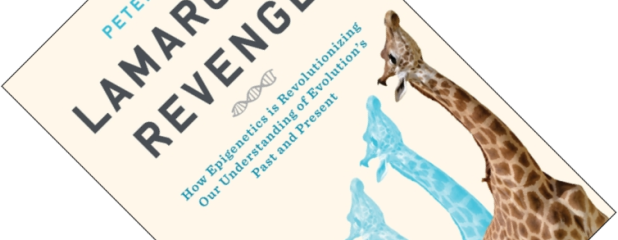In the already unusual world of viruses, retroviruses stand out for being even more so. Called “retro” because they reverse the flow of genetic information from RNA to DNA, rather than the normal DNA to RNA, they have turned out to be ancient, omnipresent, and incredibly influential. They are also important as they cause diseases such as AIDS. With Discovering Retroviruses, Anna Marie Skalka delivers a book dedicated to this particular group that is as technical as it is fascinating.
genes
Book review – Hacking the Code of Life: How Gene Editing Will Rewrite Our Futures
Since being released on the world in 2012, the biotechnological tool CRISPR has been making headlines. Biologists used to rely on the relatively blunt tools of genetic modification, but this new tool is so precise and versatile that they now speak of gene editing instead. For people in a hurry, Nessa Carey here provides a primer on the powers and pitfalls of gene editing. Hacking the Code of Life is accessible to readers without much background in genetics, focusing more on the applications and the questions it raises than the nitty-gritty details of the tool itself.
Book review – Genesis: On the Deep Origin of Societies
Why, of all the species that have ever existed, have only us humans reached this unparalleled level of intelligence and social organisation? When a senior scientist such as Edward O. Wilson trains his mind on such a question, you hope to be in for a treat.
Book review – The Drunken Monkey: Why We Drink and Abuse Alcohol
It is tempting to start this review with a nod to Monty Python’s Philosopher’s Drinking Song. But there is a dark side to our use and especially abuse of alcohol, lethal traffic accidents being just one of them. Why are we so enamoured with our booze? With The Drunken Monkey, Professor of Integrative Biology Robert Dudley puts forward the idea that it is linked to the dietary preferences of our primate ancestors who used alcohol as a cue to identify ripe fruit. Is this another evolutionary just-so story?
Book review – Quarks to Culture: How We Came to Be
How did we get here? It’s a simple question, but as all parents will affirm, the simplest questions can have the most complicated answers. With Quarks to Culture, Tyler Volk, a professor in biology and environmental studies, looks at our human culture and goes all the way back to the beginning (yes, the very beginning) to ask: “Is there a pattern here?”. What follows is a book that should be taken as a spirited thought experiment.
Book review – The Wolf Within: The Astonishing Evolution of the Wolf into Man’s Best Friend
DNA recovered from archaeological remains, so-called ancient DNA, has caused a revolution in our understanding of human evolution (see my review of Who We Are and How We Got Here: Ancient DNA and the New Science of the Human Past). In my review of The First Domestication: How Wolves and Humans Coevolved, I wondered what analyses of ancient DNA would reveal about the domestication of dogs from wolves. I have not had to wait long to find out. Geneticist Bryan Sykes here tells that story, and how man’s best friend subsequently radiated into today’s riot of breeds.
Book review – Kin: How We Came to Know Our Microbe Relatives
The problem with many history books is that they are written long after the facts, sometimes when the original protagonists are no longer alive. Historians or journalists often have no choice but to puzzle together the pieces of their story from eyewitness testimony or archival sources. Kin: How We Came to Know Our Microbe Relatives is a welcome exception to this rule. Written by emeritus microbiology professor John L. Ingraham, currently 94 years young, this book gives an intellectual history of the discipline of microbiology based on over seven decades of first-hand involvement and observation.
Book review – Extended Heredity: A New Understanding of Inheritance and Evolution
In my recent review of She Has Her Mother’s Laugh: The Powers, Perversions, and Potential of Heredity, I mentioned how the concept of heredity has become ever fuzzier the more we have learnt about how traits can be passed to the next generation. We have come from a very gene-centric period in biology, but biologists Russell Bonduriansky and Troy Day are ready to shake up the field. Neither a Lamarckian redux nor an attempt to downplay the importance of genes, this book successfully argues that the time has come to take into account non-genetic forms of heredity. Along the way, they provide a very interesting history lesson on how we got here in the first place.
Book review – The Epigenetics Revolution: How Modern Biology is Rewriting Our Understanding of Genetics, Disease and Inheritance
After the recently published Lamarck’s Revenge: How Epigenetics Is Revolutionizing Our Understanding of Evolution’s Past and Present left me little the wiser on how epigenetics actually works, I decided to track down a copy of Nessa Carey’s The Epigenetics Revolution. As one of two popular books published around the same time, it seemed like a good place to start. Peter Ward was right about one thing, this is indeed a landmark book, even if it is now a few years old.
Book review – Lamarck’s Revenge: How Epigenetics Is Revolutionizing Our Understanding of Evolution’s Past and Present
As one of several intellectuals who wrote about evolution before Darwin, time has not been kind to the French naturalist Jean-Baptiste Lamarck (1744-1829). Reviled during his lifetime by the influential Cuvier, after his death he became best remembered, and ultimately ridiculed, for the idea that characters acquired during an organism’s lifetime are passed on to its offspring. With the rise of the modern field of epigenetics, some of his ideas are making a comeback, albeit modified and adapted for the 21st Century. Palaeontologist and astrobiologist Peter Ward would even like to go so far as to restore some honour to his name and consider epigenetics a neo-Lamarckian process.


